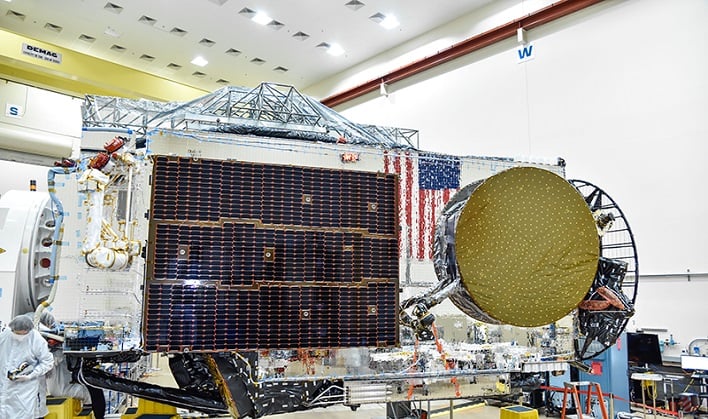SpaceX Jupiter 3 Mission's Record Falcon Heavy Rocket Blasts Off Tonight, Watch Live

Hughes Network Systems has been delivering satellite-based internet service to its customers for quite some time now. However, the company has limited its download speed to 25Mbps and uploads to 3Mbps. While this might be acceptable for those who have no other option for internet in rural areas, other companies, such as Space X, have been growing their internet-based satellite arrays in space and delivering higher speeds. Now, Hughes is adding to its already existing Jupiter 1 and Jupiter 2 satellites, allowing the company to begin offering plans with 50Mbps and 100Mbps speeds to customers in North America later this year.
Jupiter 3 is a spectrum Ka-band-based satellite that will eventually deliver internet service to residents in both North and South America. Once deployed, its 14 solar arrays will span 127 feet. It will find its home in LEO 22,300 miles above the equator, where its 300 spot beams will each carry 500MHz or more, allowing for faster service plans of up to 100Mbps.
"We'll be able to add hundreds of thousands of additional subscribers," noted Mark Wymer, a Hughes Network Systems Senior Vice President.
Vice President of Commercial Programs at Maxar Technologies, Dave Pidgeon, remarked, "Jupiter 3 will be the largest satellite we've ever built."
Plans with Hughes Net begin at $49.99 a month with 15Mbps home internet. The 25Mbps plan is nearly 50% off for $49.99 for the first 12 months of service as well. The new plans, 25Mbps, and 50Mbps, are currently being offered for $74.99 and $149.99 per month for the first 12 months.
The launch of Jupiter 3 can be viewed live later tonight via the YouTube link above, or the SpaceX website. It is scheduled to launch at 11:04pm ET, with coverage beginning approximately 15 minutes before launch.

